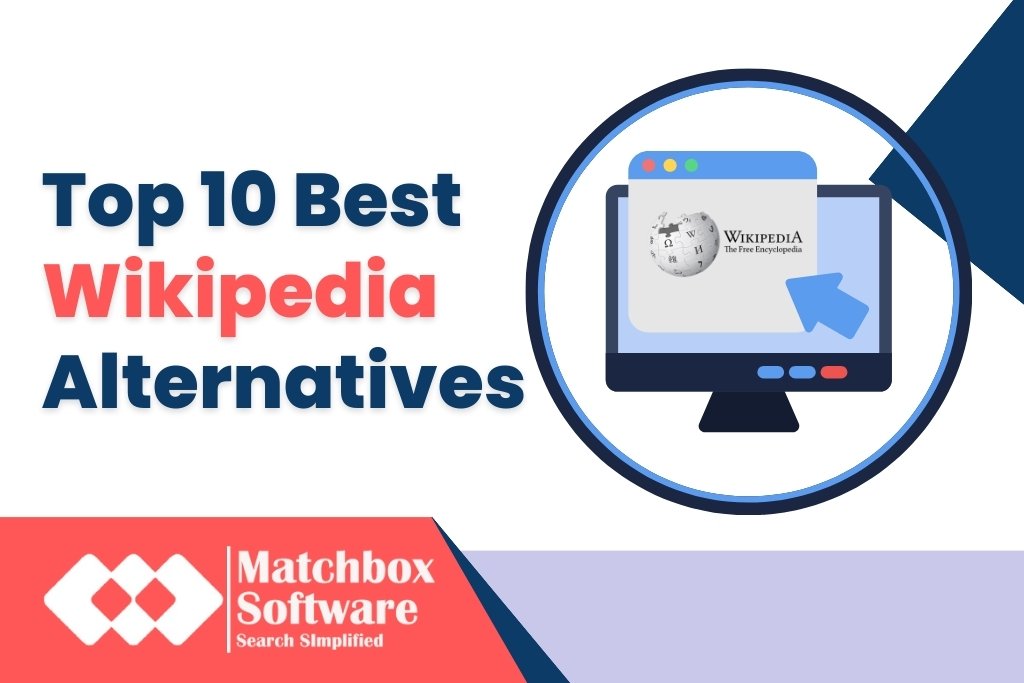Top 10 Best Wikipedia Alternatives

Though Wikipedia is the most comprehensive free encyclopedia on the internet, there are other online knowledge sources as well. There are moments when you need a fresh viewpoint, in-depth knowledge, or just a change of environment. Here’s where alternatives to Wikipedia come into play. So gather your curiosity and join us as we explore these 10 Best Wikipedia Alternatives to widen your horizons:
10 Best Wikipedia Alternatives
1. Scholarpedia:
Think of Wikipedia with contributions from renowned scholars and Nobel laureates. Experts peer-review Scholarpedia articles to ensure the highest standards of quality and accuracy in technology, science, and medicine. Dive deeply into intricate subjects knowing that the information you find is trustworthy. Expand your research horizons best Wikipedia alternatives.
2. Infoplease:
A free online encyclopedia provided by Pearson Education, the world’s largest distributor of educational books, Infoplease draws its information from credible sources such as the Random House Unabridged Dictionary and the Columbia Electronic Encyclopaedia.
Even though entries might be shorter than those on Wikipedia, the information is accurate and unaffected by outside user influence. Infoplease is a great resource for researchers, especially those taking distance education courses, because of its many multimedia features.
3. Citizendium:
The goal of this invite-only wiki is to serve as a link between scholarly journals and Wikipedia. Articles are written and edited by experts, but discussions and source recommendations are open to all readers. Citizendium is an invaluable resource for specialised and complex topics because it places a high value on quality and collaboration.
4. World Book Online:
Educators love World Book Online because it provides students of all levels with age-appropriate content. It is an effective tool for learning and exploration thanks to its interactive features, captivating multimedia, and curricular alignments. Ideal for educators, parents, and students looking for trustworthy information catered to various age groups.
5. Britannica Online:
With a history longer than your family tree, Britannica is the grand dame of encyclopaedias. Anticipate carefully fact-checked academic articles from professionals, providing a refuge for scholars conducting research.
Consider it the tweed blazer of knowledge sources—sophisticated, dependable, and ideal for making an impression on your lecturer. (Subscription needed, but hey, sometimes learning is expensive—that is, unless you want the next one!). Best Wikipedia Alternatives you never knew you needed!
6. Stanford Encyclopaedia of Philosophy:
This wealth of philosophical articles will allow you to delve far into the rabbit hole of human thought. This is your one-stop resource for thinking through the most important questions in life, from the intricate details of ethics to the mind-boggling riddles of existence.
Be advised that this may cause you to reevaluate everything you believed to be true, but in the best possible way.Here’s another one-stop guide to alternative knowledge realms for Wikipedia.
7. MIT OpenCourseware:
Get free access to MIT’s well-known course materials and unleash your inner scientist. Explore the fascinating world of academia taught by the most brilliant minds, from astrophysics to economics. It’s similar to experiencing an MIT education without having to pay the high tuition (or deal with the pressure of your smart classmates, hehe).
8. National Geographic:
Visit the National Geographic website to get your fill of wonder and exploration. Take in breathtaking images, fascinating articles, and in-depth documentaries about anything from ancient civilizations to animal behaviour. Without the jet lag, it’s similar to having a virtual passport to all corners of the world.
9. Wolfram Alpha:
You need a solution, not just a piece of writing. Wolfram Alpha performs mathematical calculations and provides computational expertise as needed. Discover a variety of topics presented in an easy-to-understand manner, including historical trends, scientific facts, and mathematical concepts. a sanctuary for problem solvers and data-driven thinkers.
10. The Conversation:
Keep up to date on the latest thinking on important topics and current affairs with professional analysis. Scholarly and journalistic pieces with a focus on research are published in The Conversation, providing a range of viewpoints and in-depth analyses. Ideal for lifelong learners and knowledgeable citizens.
Recall that the optimal choice is determined by your unique requirements and tastes. Do you yearn for information backed up by experts? Look up Scholarpedia or Citizendium. Are you an interactive learner? Awaiting you is Khan Academy. Do you lack time? Bite-sized knowledge is provided by Crash Course. Lastly, don’t undervalue the influence of carefully chosen YouTube channels on specialised subjects and captivating lectures. So these are the 10 Best Wikipedia Alternatives
Go beyond the known, investigate these incredible options, and open the door to a world of information just waiting to be discovered. Happy studying!

